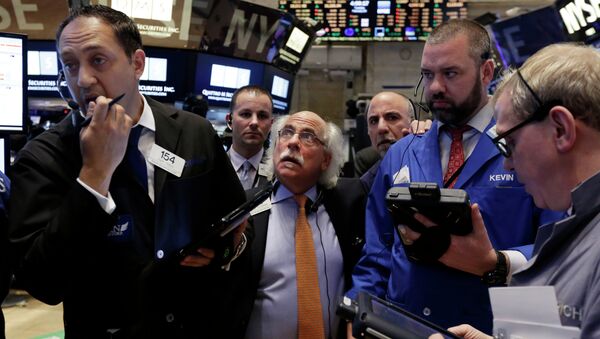Kristian Rouz – Wall Street posted gains across all three major indices on Friday after GE announced it would purchase $50 bln worth of its own shares.
US investors switched their attention from US Fed activity to corporate sector reports as earnings season is underway in America. Meanwhile, US import prices dropped in March due to a stronger dollar. Global oil prices are on the rise as Iran might take a step back from the recent accords.
The Dow Index rose 0.55% and theNasdaq inched 0.43% up. Weekly gains for the US major indices were 1.6% in the Dow, 1.7% in the S&P, and 2.3% in Nasdaq. The two former indices were driven mainly by corporate gains, fueled by M&A activity.
However, the dire effects of a stronger dollar for US multinationals might hit corporate earnings in general. Thus far, companies listed in the S&P 500 are expected to lose 2.9% their earnings in Q1.
Energy companies are expected to suffer heavy losses in profits, as much as 63% year-on-year in Q1, as oil remains cheap.
In a most recent report, the US Labour Department said on Friday import prices fell in March by 0.3%, compared to the loss of 0.2% the previous month, again, due to a cheaper energy and a stronger dollar.
On Thursday, Iranian leaders demanded that international sanctions, limiting the nation’s ability to export oil, be lifted immediately, to which the US reiterated the sanctions will stay in place and be lifted gradually, in line with the implementation of the achieved agreements. At the same time, a bigger demand for oil in the US and Germany pushed energy prices up as well. Germany posted strong growth figures earlier this week, while in the US, the domestic oil rig count fell to 760, with 800, or over 50%, oil derricks idled.
In major currencies, the US dollar posted further gains on general optimism of the US economy, with the British sterling falling 1.8% this week to $1.4632 amidst high volatility in the currencies markets. The euro slid 0.52% to $1.0604, and the yen lost 0.3%, with 1 dollar buying 120.22 yen.





